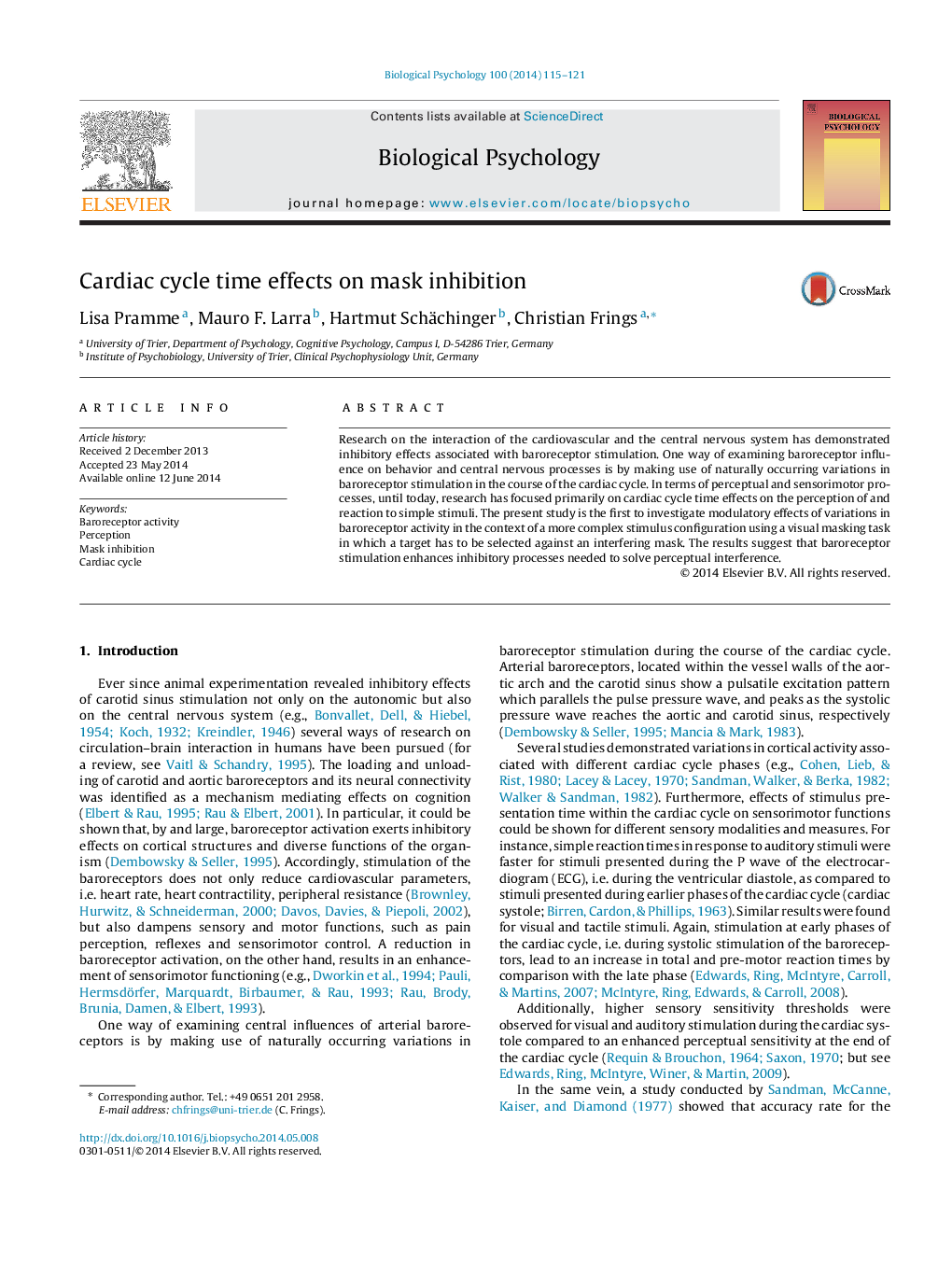| Article ID | Journal | Published Year | Pages | File Type |
|---|---|---|---|---|
| 920908 | Biological Psychology | 2014 | 7 Pages |
•Using a cardiac-cycle-time paradigm stimuli were presented during the systole (after 170 ms of the R wave) or the diastole (after 470 ms of the R wave).•A low contrast target stimulus had to be selected against an interfering high contrast forward mask.•Target discrimination was better during the systole as compared to the diastole.•Mask interference was reduced by inhibition due to baroreceptor activation.
Research on the interaction of the cardiovascular and the central nervous system has demonstrated inhibitory effects associated with baroreceptor stimulation. One way of examining baroreceptor influence on behavior and central nervous processes is by making use of naturally occurring variations in baroreceptor stimulation in the course of the cardiac cycle. In terms of perceptual and sensorimotor processes, until today, research has focused primarily on cardiac cycle time effects on the perception of and reaction to simple stimuli. The present study is the first to investigate modulatory effects of variations in baroreceptor activity in the context of a more complex stimulus configuration using a visual masking task in which a target has to be selected against an interfering mask. The results suggest that baroreceptor stimulation enhances inhibitory processes needed to solve perceptual interference.
